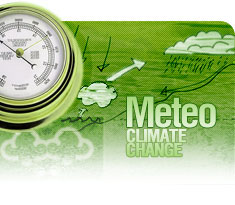https://www.rferl.org/a/kyrgyzstan-climate-change-glaciers-rivers-/32734186.html
Kyrgyzstan welcomed the first snow of the winter a few days ago as the mountainous Central Asian country gears up for New Year's festivities.
But the freshly fallen snow cannot cover up the damaging effects of climate change that the country faces.
Although Kyrgyzstan has a tiny carbon footprint -- emitting just 0.03 percent of the world's greenhouse gases -- the country's thousands of glaciers and bountiful agricultural sector are very vulnerable to the world's rising temperatures.
The average annual temperatures in Kyrgyzstan have increased by about 1.3 degrees Celsius in the past two decades, according to IMF data, and experts say that trend could lead to an increase of some 6.1 degrees Celsius by the end of the century.
The pace of warming temperatures in Kyrgyzstan has also been faster than the global average of some 4.4 degrees Celsius, with new studies showing glaciers in the former Soviet republic melting quicker in recent decades, the Kyrgyz Natural Resources Ministry says.
Such a trajectory has experts worried that many of Kyrgyzstan's 6,500 glaciers -- which cover more than 8,000 square kilometers of the country and hold an estimated 650 cubic kilometers of fresh water -- could shrink by 50 percent by 2050 and even completely vanish by the end of the century.
A 2018-19 study by the Central Asian Institute of Applied Geosciences concluded that glacial areas in Kyrgyzstan have already decreased by 16 percent in the past 50 years.
The government in Bishkek says it is committed to reducing carbon emissions and adapting to climate change, but the country has taken few steps in this direction thus far.
Longer Summers
Kyrgyzstan has been experiencing especially hot summers in recent years, with temperatures hovering around 40 degrees Celsius in many parts of the country, including the capital, Bishkek, for longer periods of time.
Kyrgyz experts also report the average duration of summer and spring temperatures in Kyrgyzstan's northern Chui Valley has risen in the past 50 years, with fall and winter days decreasing.
"According to data from the Bishkek meteorological center, the length of winter [temperatures has] contracted from 95 days to 71 days. The duration of spring saw a slight increase by three days, while the length of summer increased from 145 to 154 days," said Kanat Abdrakhmatov, head of the National Academy of Sciences.
"Autumn contracted from 75 days in 1961-1990 to 71 days in 1991-2021," Abdrakhmatov wrote on Facebook, adding that winter now arrives later than before, while spring and summer start earlier and last longer.
Such changes in the seasonal cycles featuring prolonged summers and shrinking winters have been recorded in many other parts of the world and are linked to climate change.
Kyrgyzstan has also faced more frequent droughts and less rain and snow, which have had a crippling impact on agriculture.
Almazbek Sokeev, the head of the Water Resources Department at the Agriculture Ministry, says that while droughts in the country occur every five to six years on average, severe water shortages are now happening almost every other year.
"For example, the flow of water in the Alamudun River [in northern Kyrgyzstan] was about 18-20 cubic meters per second in the past, but in May it didn't exceed 5 cubic meters per second, marking a fourfold decrease," he said.
The shortage of water in the country's rivers, which is exacerbated by a lack of precipitation this year, caused irrigation problems and led to decreased crop yields on farms, Sokeev added.
With some 65 percent of Kyrgyzstan's population living in rural areas and dependent on their harvests and livestock for survival, the country cannot continue to bear the brunt of climate change in the coming decades.



 Română
Română English
English


